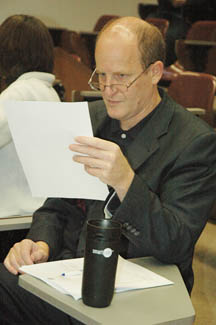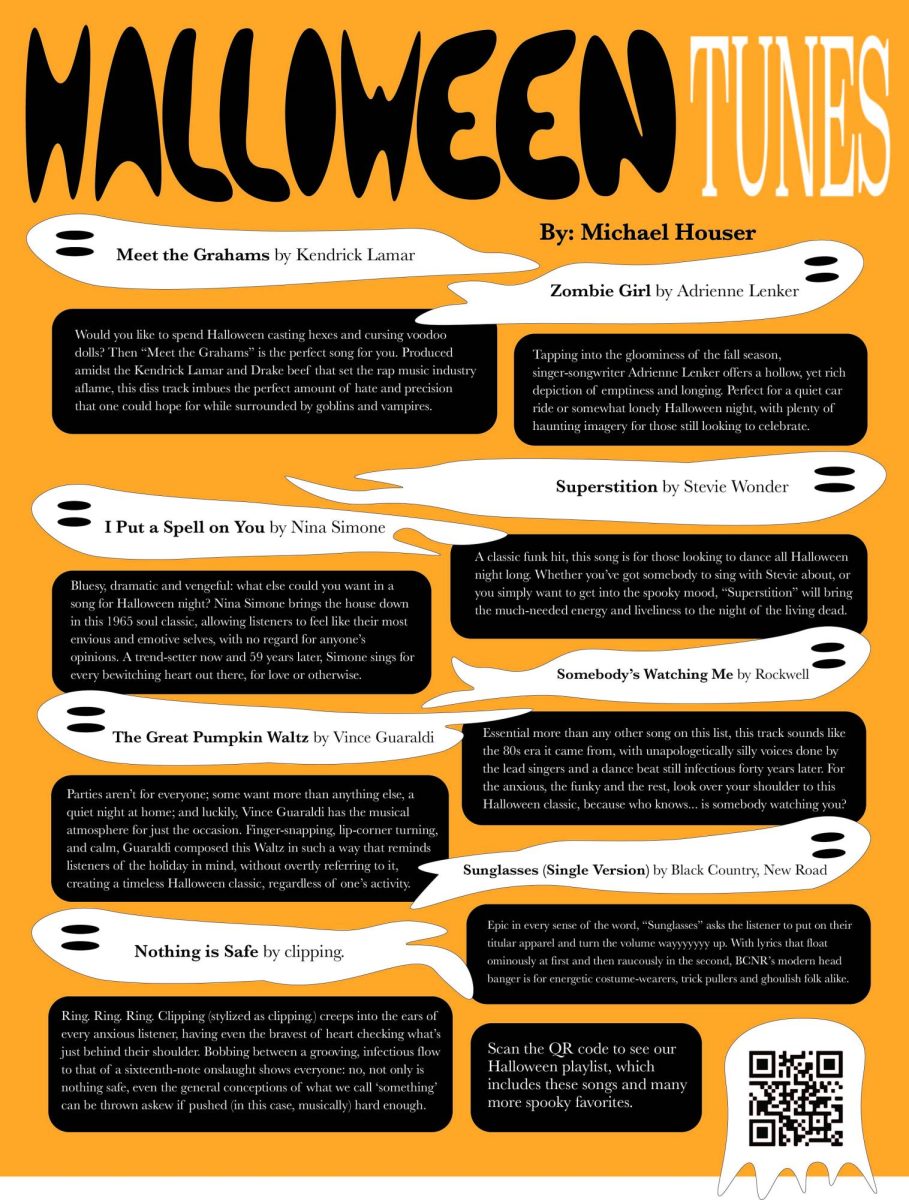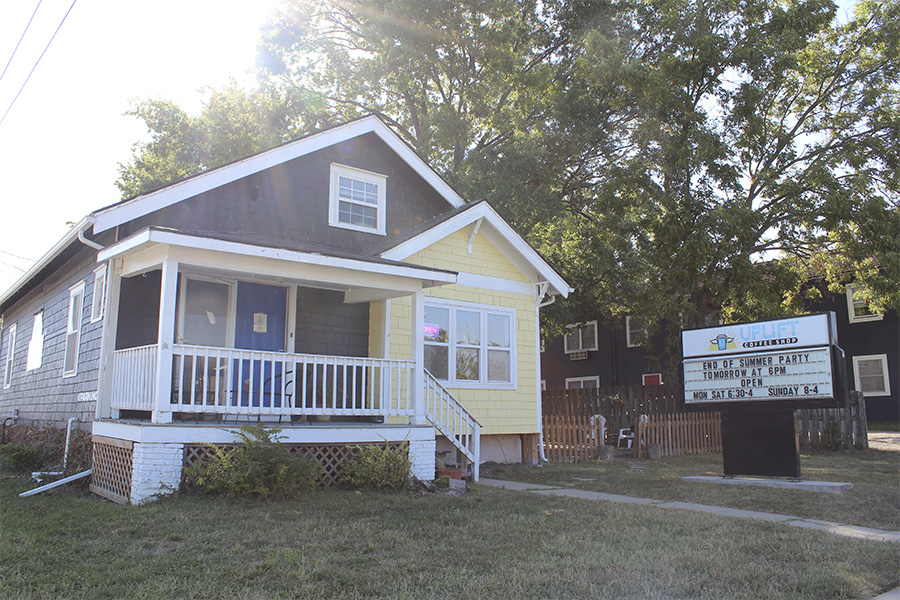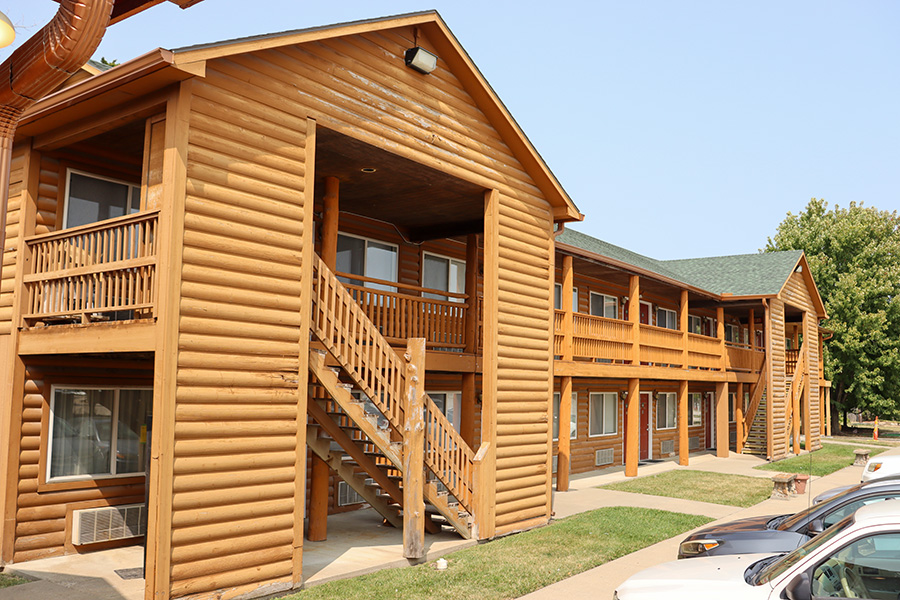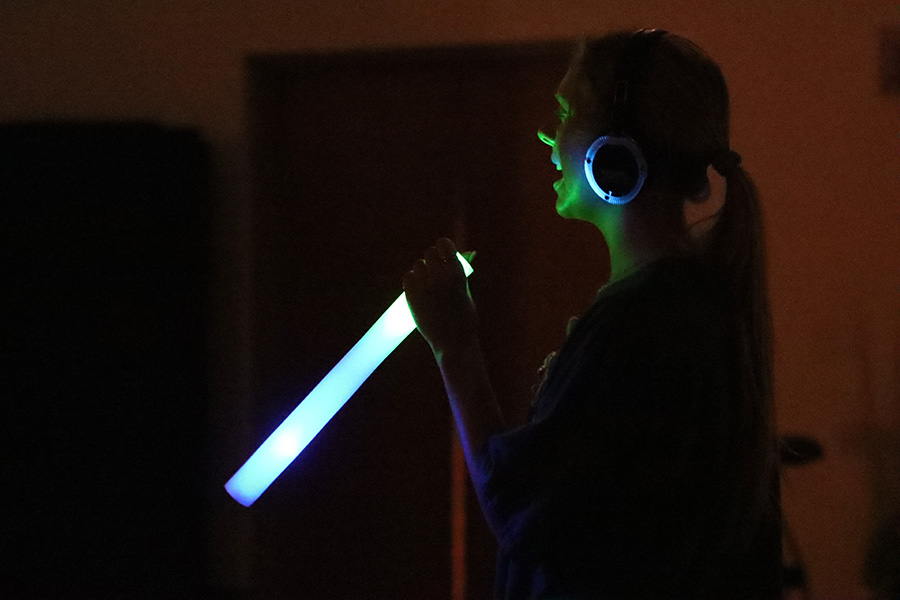Interterm and tenure were some of the items discussed at the Baker University Faculty Senate meeting Tuesday in Mabee Memorial Hall.
At the meeting, a motion that was a proposed amendment to the faculty handbook about post-tenure review was passed.
The motion about post-tenure review states all tenured faculty at Baker University will participate in a post-tenure review every six years. Each faculty member will submit a letter to the chair of the Faculty Development Evaluation Committee.
“This motion also does not say, ‘this will solve all the problems we can think of with this part of the handbook,'” Professor of Communication Susan Emel said. “This motion deals with this year, immediately. Right now, it is necessary.”
This process is replacing the portfolio process that has been used to do post-tenure review.
“We need to either pass this … or we will go through another year where post-tenure requires an incentive portfolio,” Emel said.
At the meeting, Professor of Biology Darcy Russell presented to the senators from the Educational Curriculum and Programs Committee. The four motions from EPC all passed, including the approval of 31 interterm courses, including four travel interterm trips.
Some discussion arose, however, about why two of the courses were graded, and the rest were pass or no credit courses. The courses, Medical Terminology and Introduction to Arabic Language, are the only courses that were presented to the senators as graded courses.
Professor of Chemistry Gary Giachino motioned that Introduction to Arabic Language not be graded, but the motion did not pass.
“The reason I made the motion, of course, is that we’re trying to get rid of the grades during interterm,” Giachino said. “I was just trying to be consistent with that. I really think that in all cases except one, and that’s the Medical Terminology course, that we really won’t accept a grade. I would really like to see us move in that direction. Interterm is different.”
The next item under new business came from Ryan Beasley, associate professor of international studies.
The motion was concerning De Facto Tenure and whether or not it should be added to the faculty handbook.
If added, De Facto Tenure would be awarded to a faculty member who serves the university in the same way as a tenured-track professor, but is not tenured, and is on a probationary period of seven or more years.
“I think it’s important for us, as faculty, to step forward and make our preferences about who should be tenured and what they should be tenured known, and I think this would be an appropriate avenue for that as well,” Beasley said.
Because the motion is a change to the Faculty Handbook, it will lay over until the next meeting, which is at 11 a.m. Nov. 2 in Mabee Memorial Hall.


